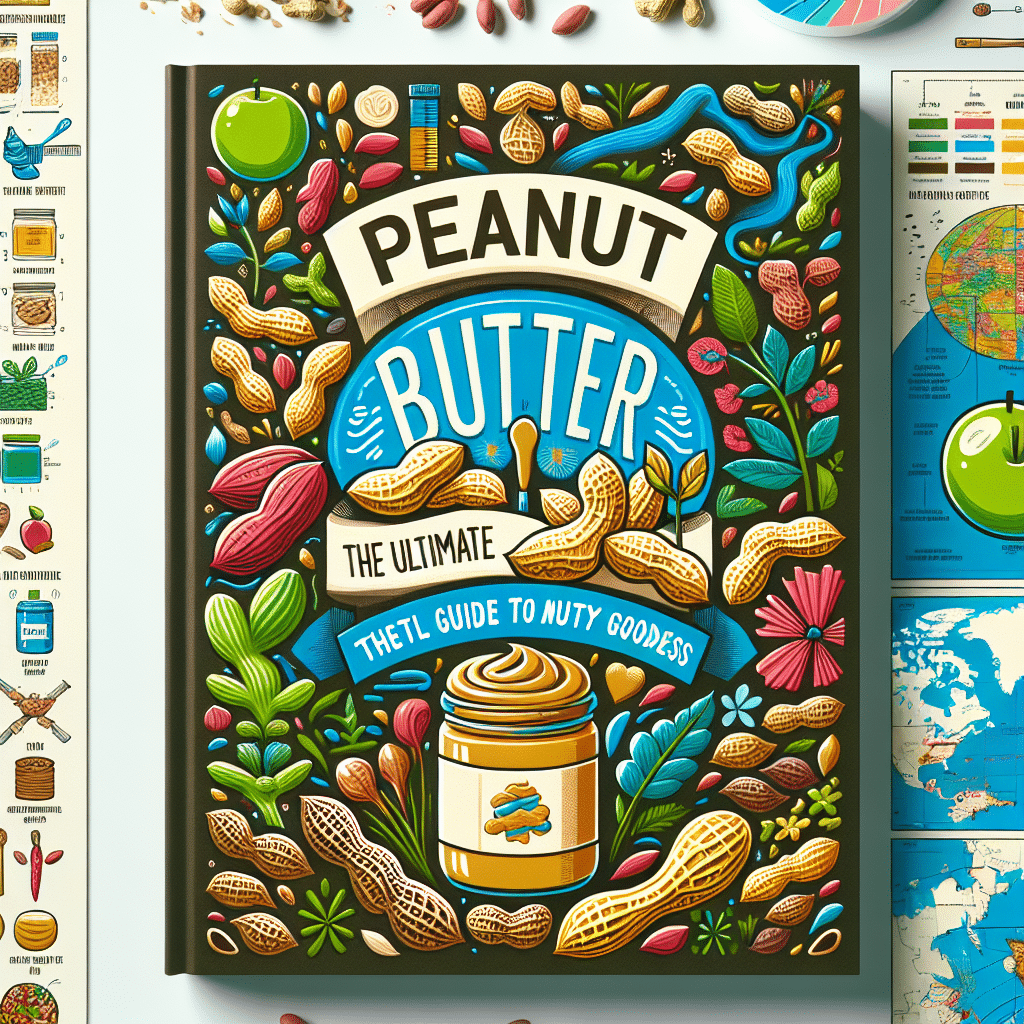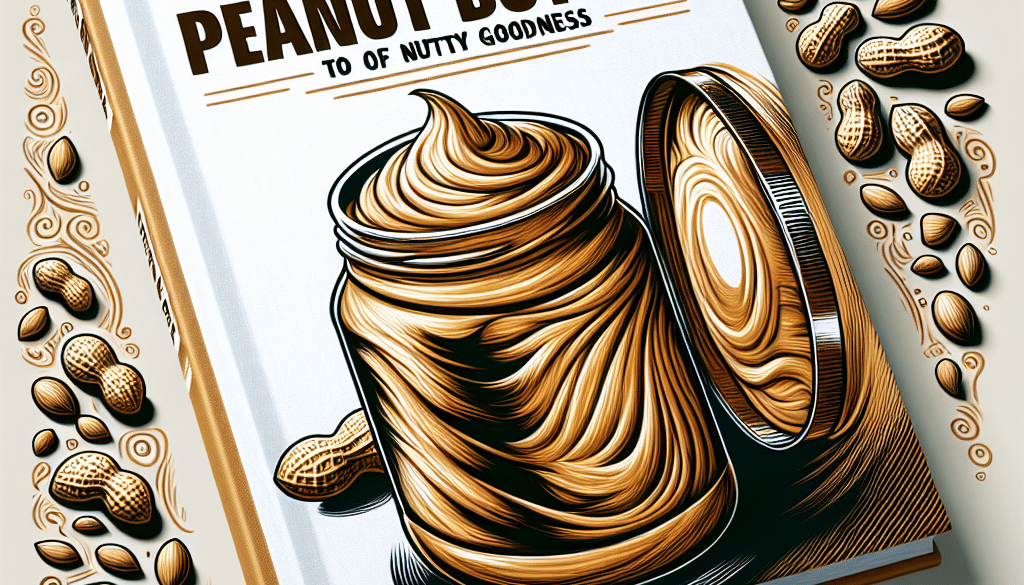Peanut Butter: The Ultimate Guide to Nutty Goodness
-
Table of Contents
- Peanut Butter: The Ultimate Guide to Nutty Goodness
- The Origins of Peanut Butter
- Health Benefits of Peanut Butter
- Choosing the Right Peanut Butter
- Peanut Butter in the Kitchen
- Peanut Butter Around the World
- Environmental and Ethical Considerations
- Conclusion: Embracing the Nutty Goodness
- About ETprotein
Peanut Butter: The Ultimate Guide to Nutty Goodness

Peanut butter is a staple in many households around the world, known for its rich flavor, creamy texture, and versatile nature. Whether spread on toast, used in baking, or incorporated into savory dishes, peanut butter has secured its place in the pantheon of beloved foods. This ultimate guide will delve into the world of peanut butter, exploring its history, health benefits, varieties, and uses, while providing valuable insights and statistics to enhance your appreciation for this nutty delight.
The Origins of Peanut Butter
The history of peanut butter is as rich as its flavor. While peanuts have been cultivated for thousands of years, the creamy spread we know today has a more recent origin. In the late 1800s, Dr. John Harvey Kellogg, known for his cereal empire, patented a process for creating peanut butter from raw peanuts. It was initially marketed as a protein substitute for people who had difficulty chewing solid food.
However, it wasn’t until the early 20th century that peanut butter became popularized as a staple food item. The invention of hydrogenation by chemist Joseph Rosefield in the 1920s allowed peanut butter to remain fresh and spreadable for longer, leading to the mass production and widespread consumption we see today.
Health Benefits of Peanut Butter
Peanut butter isn’t just delicious; it’s also packed with nutritional benefits. Here are some key health advantages:
- Protein Powerhouse: Peanut butter is an excellent source of protein, essential for muscle repair and growth.
- Heart-Healthy Fats: Rich in monounsaturated and polyunsaturated fats, it can help maintain healthy cholesterol levels.
- Fiber Content: It contains dietary fiber, which aids in digestion and promotes satiety.
- Vitamins and Minerals: Peanut butter is a good source of vitamins E and B6, magnesium, potassium, and zinc.
Despite these benefits, moderation is key due to its high calorie and fat content. Opting for natural or unsweetened varieties can also help maximize health benefits.
Choosing the Right Peanut Butter
With numerous options on the market, selecting the right peanut butter can be overwhelming. Here’s a breakdown of the different types:
- Smooth vs. Crunchy: Smooth peanut butter offers a creamy texture, while crunchy includes peanut pieces for added texture.
- Natural vs. Processed: Natural peanut butter typically contains just peanuts and salt, whereas processed versions may include added sugars, oils, and preservatives.
- Flavored Varieties: Some brands offer peanut butter with added flavors like chocolate, honey, or cinnamon.
When shopping for peanut butter, check the label for ingredients and nutritional information to ensure you’re making a choice that aligns with your dietary preferences and needs.
Peanut Butter in the Kitchen
Peanut butter’s versatility makes it a favorite ingredient in both sweet and savory dishes. Here are some creative ways to use it:
- Baking: From cookies to brownies, peanut butter adds a rich flavor to baked goods.
- Smoothies: Blend it into smoothies for a protein boost and creamy texture.
- Sauces and Dressings: It can be the base for savory sauces in dishes like satay or used in dressings for salads.
- Breakfast: Spread it on toast or mix it into oatmeal for a satisfying start to the day.
Experimenting with peanut butter in various recipes can lead to delicious discoveries and new favorites.
Peanut Butter Around the World
Peanut butter’s popularity isn’t confined to any single region. In the United States, it’s a beloved sandwich filling, often paired with jelly. In countries like the Netherlands, it’s known as “pindakaas” and is commonly used as a sandwich spread. In parts of Africa and Asia, peanut butter is used to thicken and flavor stews and soups.
Statistics show that the global peanut butter market is growing, with an increasing demand for healthier and more diverse options. This growth is driven by the product’s nutritional value, convenience, and the global love for its taste.
Environmental and Ethical Considerations
As with many agricultural products, peanut butter production comes with environmental and ethical considerations. The cultivation of peanuts can be water-intensive, and there are concerns about labor practices in the peanut industry. To address these issues, some brands offer organic and fair-trade peanut butter, ensuring more sustainable farming methods and fair compensation for workers.
Conclusion: Embracing the Nutty Goodness
Peanut butter is more than just a spread; it’s a versatile, nutritious, and delicious addition to any diet. With its rich history, health benefits, and myriad uses, peanut butter has rightfully earned its place in kitchens worldwide. Whether you prefer it smooth or crunchy, natural or flavored, there’s no denying the appeal of this nutty treat.
For those looking to incorporate more protein into their diets, ETprotein company’s protein products are an excellent complement to the benefits of peanut butter. Their range of organic and plant-based proteins can enhance your nutritional intake and support a healthy lifestyle.
About ETprotein
ETprotein, a reputable protein Chinese factory manufacturer and supplier, is renowned for producing, stocking, exporting, and delivering the highest quality organic bulk vegan protein and plant proteins. They include Organic rice protein, clear rice protein, pea protein, clear pea protein, pumpkin seed protein, sunflower seed protein, mung bean protein, peanut protein etc. Their offerings, characterized by a neutral taste, non-GMO, allergen-free attributes, cater to a diverse range of industries. They serve nutraceutical, pharmaceutical, cosmeceutical, veterinary, as well as food and beverage finished product distributors, traders, and manufacturers across Europe, USA, Canada, Australia, Thailand, Japan, Korea, Brazil, and Chile, among others.
ETprotein specialization includes exporting and delivering tailor-made protein powder and finished nutritional supplements. Their extensive product range covers sectors like Food and Beverage, Sports Nutrition, Weight Management, Dietary Supplements, Health and Wellness Products, and Infant Formula, ensuring comprehensive solutions to meet all your protein needs.
As a trusted company by leading global food and beverage brands and Fortune 500 companies, ETprotein reinforces China’s reputation in the global arena. For more information or to sample their products, please contact them and email sales(at)ETprotein.com today.












